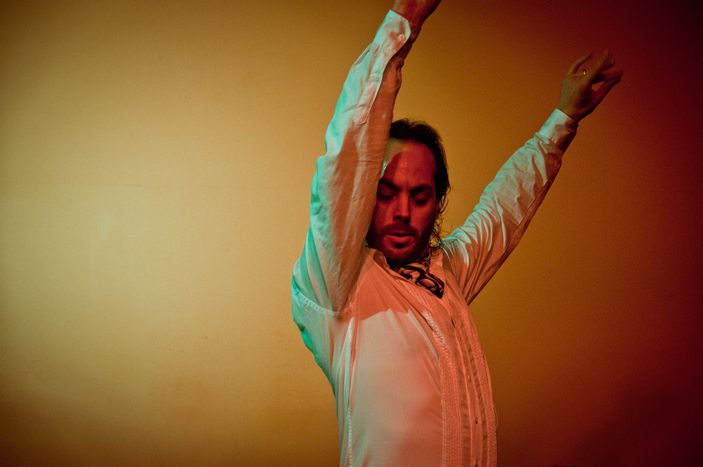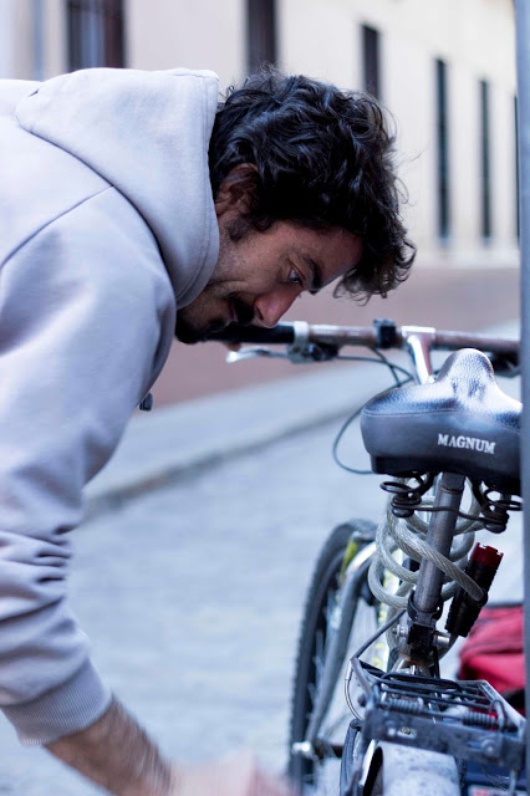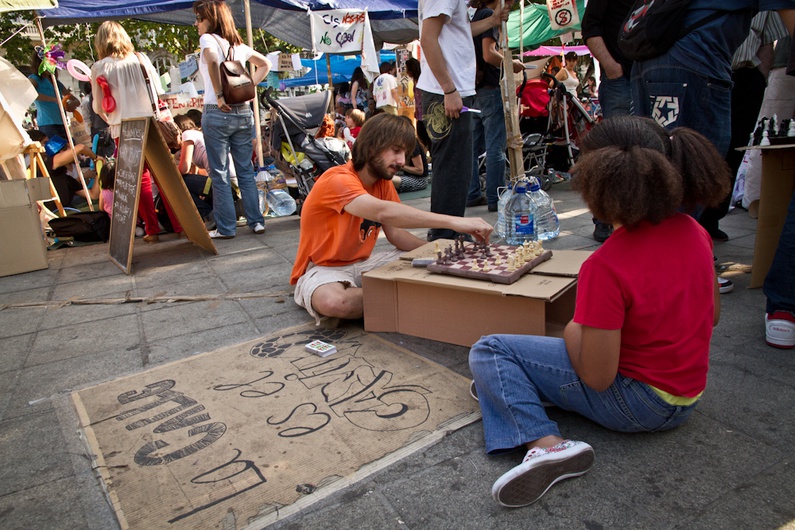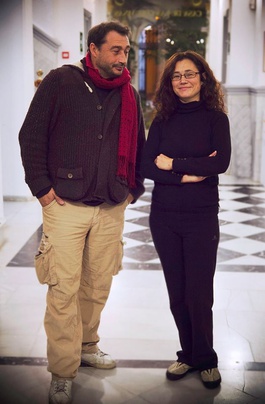
Seville: Dance Classes in the Time Bank
Published on
Translation by:
 Danny S.
Danny S.
The Triana district in Seville is allegedly the cradle of flamenco. Today, people are taking dance classes here in a bank. In the time bank, services are exchanged for others. I visited the bank in Seville to see whether it works and I didn't have to bring any money to do so.
Every Thursday night in the Centro Cívico of Triana, people meet in the 'Banco del Tiempo' (Time bank — Ed.). The meeting spot in the Centro Cívico is relatively new, so it's rather quiet and empty when we conduct our interview, at least in the assembly room. In the room next door, music is paired with clapping and stamping — there, a sevillanas music and dance class for seniors is taking place.
Beginnings in the protest movement
Eva Marino, one of the founders of the Banco del Tiempo, recounts its beginnings and its inception. People gathered together in the context of Movimiento 15M, the Spanish protest movement of May 15, 2011. After the first wave, smaller committees met sporadically. Economic alternatives were considered and discussed; out of that eventually emerged the idea of creating a time bank. They wanted to implement something concrete, to develop something that actually helps others.
 The concept is simple: trade one hour of services against one hour of another service — a fair compensation. Here it revolves around standing in solidarity with each other above all, not economic exploitation. The goal is for people to support each other in times of crisis. Not everyone has money, but everyone has some kind of skill, something they can offer others in exchange for a skill they may not have. It is classified as mutual help. Continued education, workshops, classes; language exchanges in particular are in high demand, but also help around the house, escort services for handicapped persons, translation work, sewing, haircuts and more.
The concept is simple: trade one hour of services against one hour of another service — a fair compensation. Here it revolves around standing in solidarity with each other above all, not economic exploitation. The goal is for people to support each other in times of crisis. Not everyone has money, but everyone has some kind of skill, something they can offer others in exchange for a skill they may not have. It is classified as mutual help. Continued education, workshops, classes; language exchanges in particular are in high demand, but also help around the house, escort services for handicapped persons, translation work, sewing, haircuts and more.
There's a website where you can learn more and register. Currently, around 160 people are registered at the Banco del Tiempo. In the beginning, it was only around 70. The concept is in demand, and aside from the gains from mutual output, such an exchange serves as a beacon of hope — and maybe even as therapy. You get the feeling that others are there for you, that you'll be helped and that you yourself can help. This increases self-esteem.
For some time now, the exchange has also taken place between different groups. A guitar class with six students practices one hour every week. Each student pays with one hour of a service in return.
 Even the founder doubts whether an alternative system without the use of money can last on a large scale and within a capitalistic system. It works great on a small scale, but on the large scale things get considerably more complicated.
Even the founder doubts whether an alternative system without the use of money can last on a large scale and within a capitalistic system. It works great on a small scale, but on the large scale things get considerably more complicated.
FLAMENCO WAS ALSO BORN HERE
 Cooperation with other time banks has been non existent up until now, with the exception of one case. It seems feasible to really develop this whole thing. But for now, they're going to first concentrate on Seville. They envisage transforming social services following the same concept, such as the care of the elderly, or help with schools and facilities for children. For the time being, there hasn't been any support from the government for the initiatives of the Banco del Tiempo. Eva Marino sees Triana as being the perfect place for the headquarters of the time bank — not only was flamenco also born here, but people gather here who are interested in alternatives, in exchange, in cooperation.
Cooperation with other time banks has been non existent up until now, with the exception of one case. It seems feasible to really develop this whole thing. But for now, they're going to first concentrate on Seville. They envisage transforming social services following the same concept, such as the care of the elderly, or help with schools and facilities for children. For the time being, there hasn't been any support from the government for the initiatives of the Banco del Tiempo. Eva Marino sees Triana as being the perfect place for the headquarters of the time bank — not only was flamenco also born here, but people gather here who are interested in alternatives, in exchange, in cooperation.
I myself live as a German expat in Barcelona and know how sparse the number of jobs and proportionate salaries are. I belong to those who are also trying to find a way to live in and with this situation, to somehow make the best of it. I knew of many alternative movements, but until now I had never heard of a time bank. The Banco del Tiempo model can also be found in Barcelona. In Spain, the symbol of the times is the bank of time.
This article is part of a special series devoted to seville. It's part of eu-topia: time to vote, a project run by cafébabel in partnership with the hippocrène foundation, the european commission, the ministry of foreign affairs and the evens foundation.


Translated from Sevilla: Tanzunterricht in der Zeitbank


